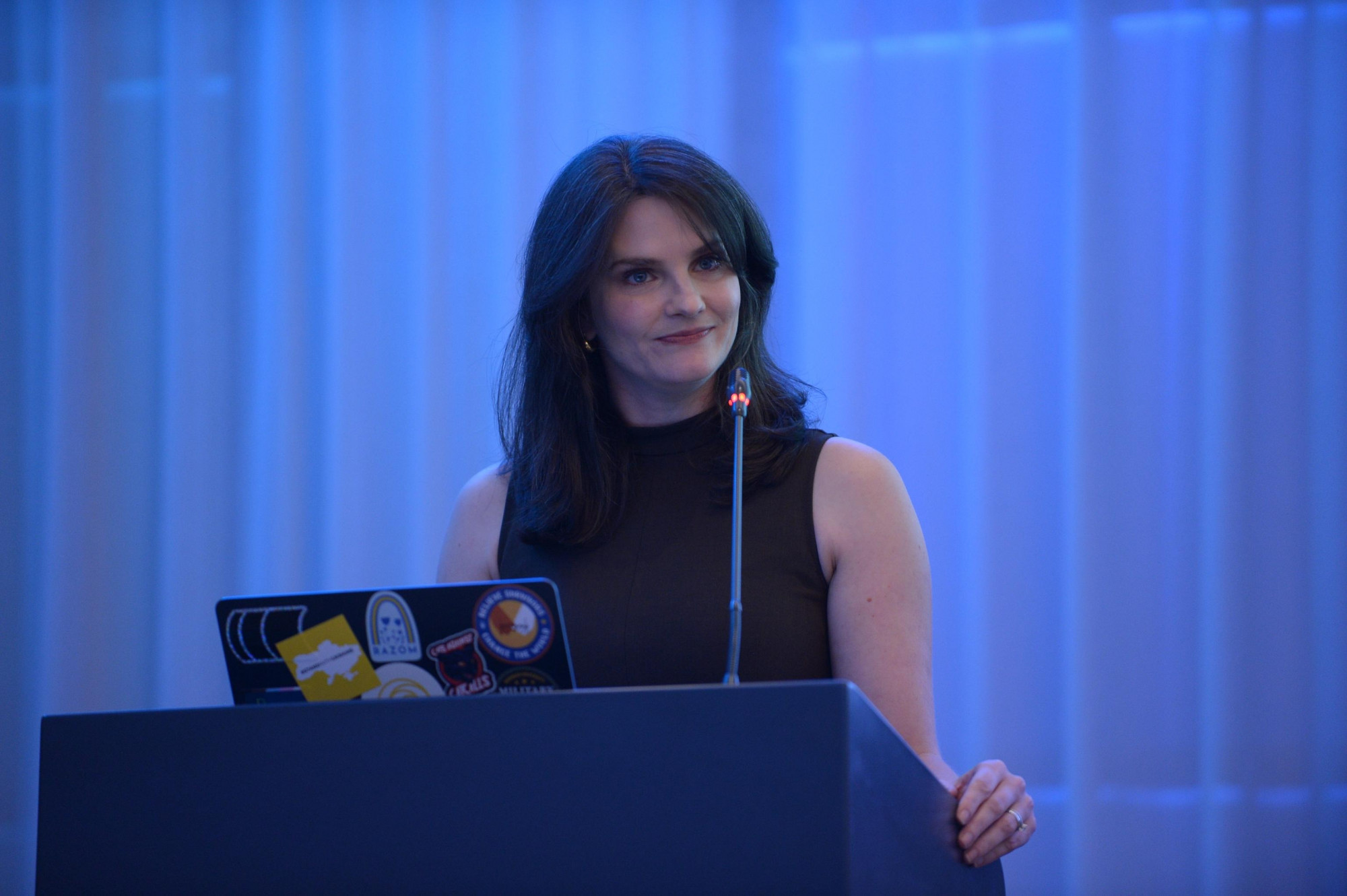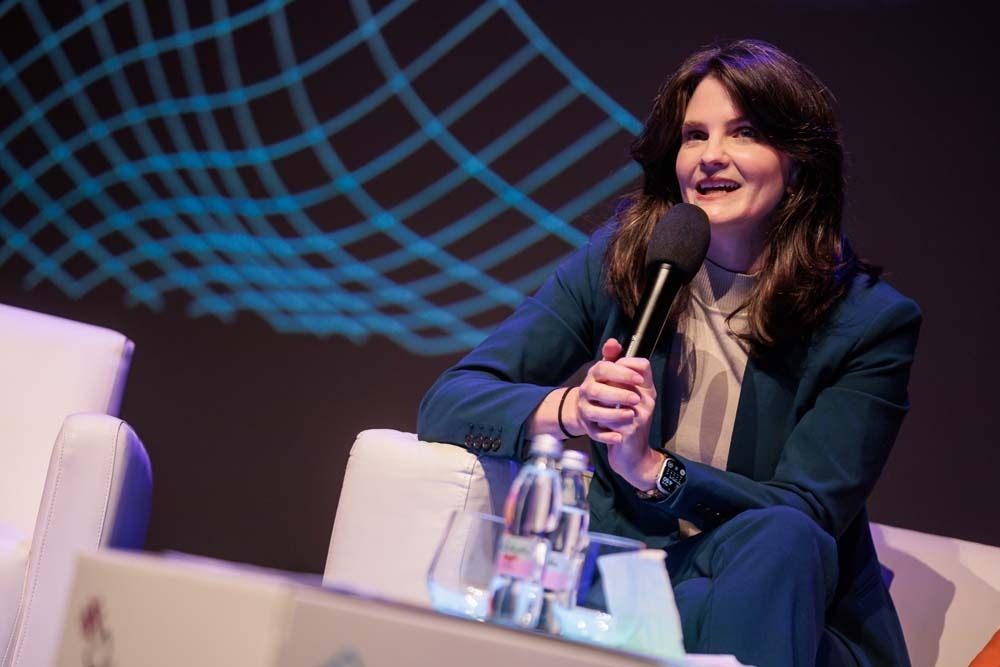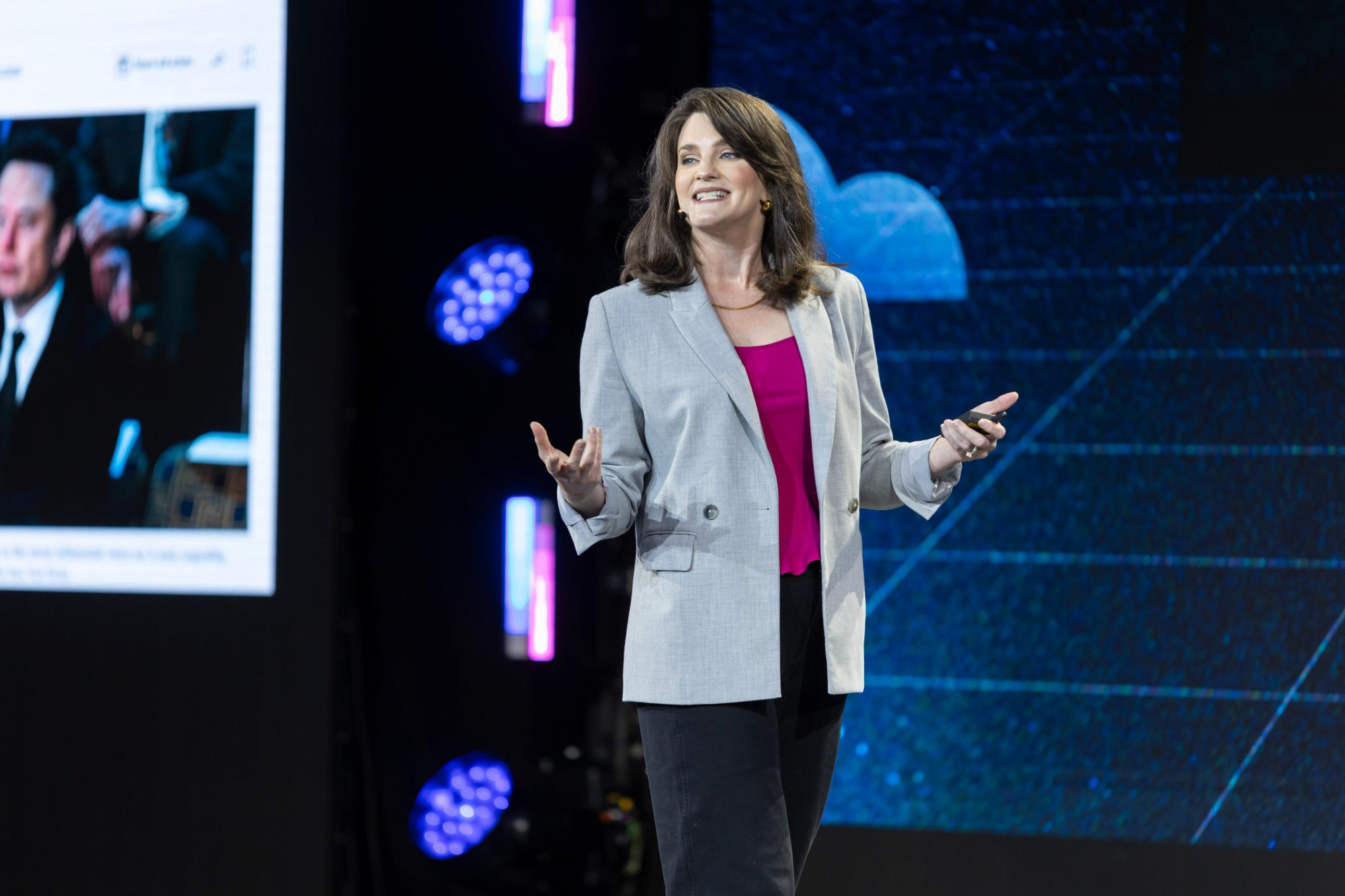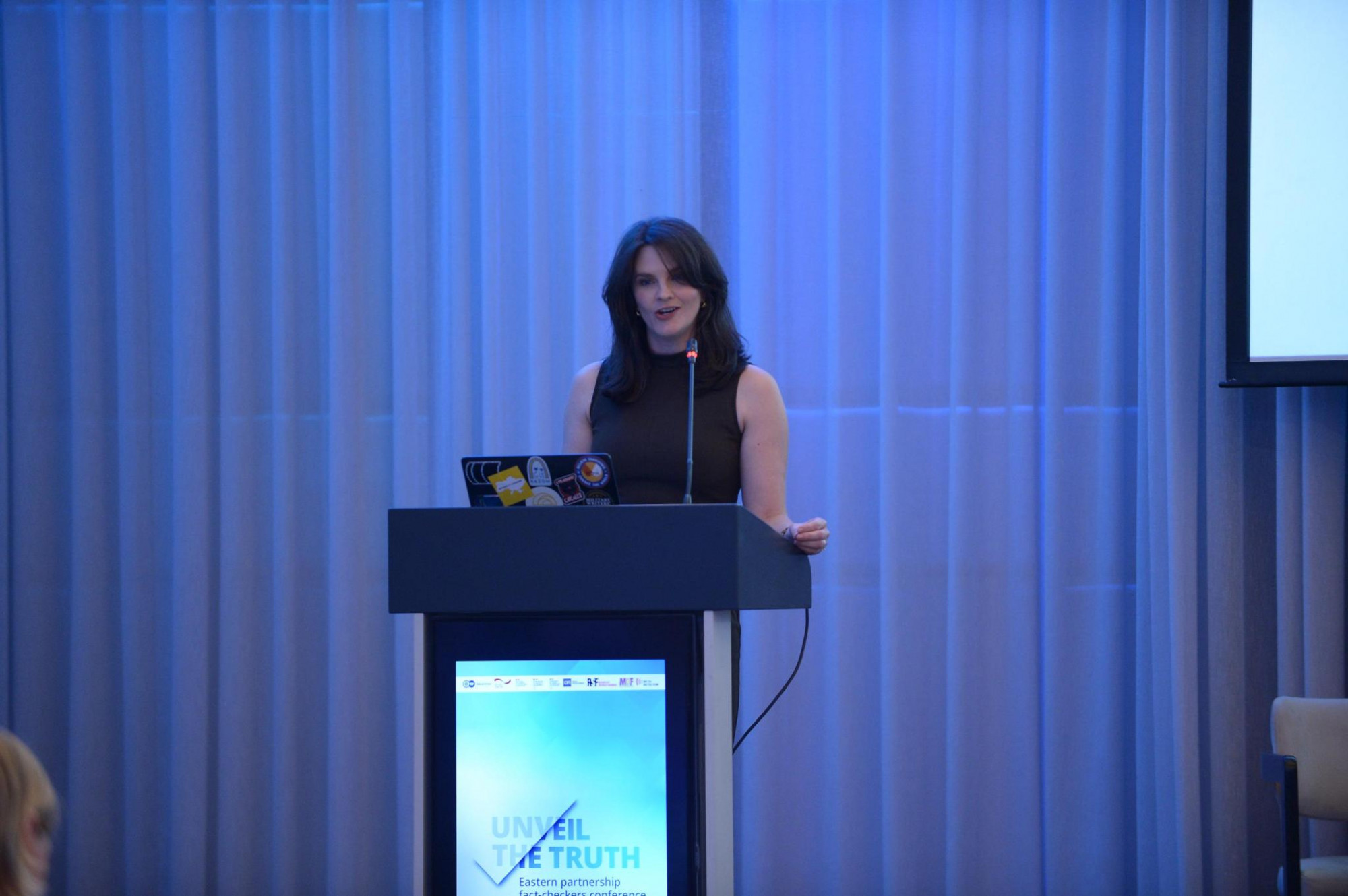“Today we see the biggest restriction on freedom of expression in the United States since maybe the McCarthy era, maybe ever”
2025. november 19. 16:11
Looking back, 2020 was the golden age of the fight against disinformation, but today there is no longer even agreement that fake news is dangerous to democracy, says disinformation researcher Nina Jankowicz in our interview.
Nina Jankowicz briefly headed the Biden administration's anti-disinformation body in 2022, but resigned due to a wave of massive online harassment against her. In her two published books she examines the relationship between technology and democracy, the impact of Russian disinformation on Western societies, and online violence against women. She currently works primarily in the civil and academic spheres to combat disinformation. We spoke with her at a conference in Chisinau about the online attacks against her, the Trump administration's peculiar interpretation of free speech, the responsibility of social media platforms, and what we should do to create a healthier online environment.
Here are her key statements:
- The disinformation environment has become much noisier over the past decade: platforms have yielded to political pressure, and there are more and more targeted smear campaigns, domestic disinformation, and misleading information generated by AI.
- Disinformation has become normalized: the spread of misleading information is even appearing at the highest levels of certain governments.
- Platforms do not even follow their own rules and have a financial interest in spreading disinformation.
- Stopping paid political advertising is not a good idea, and it restricts freedom of speech.
- We need to move towards more active information consumption, where we choose more consciously what content we click on.
In 2022, you were appointed to lead the Biden administration’s Disinformation Governance Board, and you were immediately targeted by massive online harassment. You were called “the minister of truth,” the “disinformation czarina,” you were targeted with deepfake porn. Could you tell me more about your experience around that time?
I joined March 2nd of 2022, just a week after the full-scale invasion of Ukraine. The Disinformation Governance Board was an advisory board of the United States Department of Homeland Security (DHS). The board was supposed to bring together various parts of the DHS that dealt with disinformation and ensure that these were harmonized in the fight against disinformation. My job was to make sure that the policies they were using to respond to disinformation were protecting civil rights, privacy, and freedom of expression. The board never intended to censor anything or remove any information from the internet, it had no right to do so; and I had no decision-making authority; I merely issued policy recommendations for them to implement.
The Biden administration only announced my appointment eight weeks after I started work – which was a mistake in such a sensitive political issue. Not only did the announcement come late, but it was also not very transparent, it raised more questions than it answered. The right-wing saw a narrative in it they could control.
I was pregnant that time with my first and still only child and it was my first government job; I wanted to speak out and defend myself, but the department said that I was under embargo. They also didn’t respond to media requests. They thought it would blow over. But it didn’t. Three weeks later it was still happening, threats against me and my family were pretty significant, we were doxed, people were saying terrible things about my unborn child. In the meantime, the administration didn’t protect me. I left because I felt that there was a chance that if I left the government, my family would be left alone. It didn’t seem worth sticking around an administration which did not seem to have my back.
What happened after, did the harassment really blow over?
Not at all, the threats continued very strongly, Fox News continued to talk about me almost every week for the rest of 2022, they depicted me as woke and feminazi.
Later I decided to sue Fox News: after a long process in September 2025, it was announced that I lost the defamation lawsuit. The reasoning included that people understood Fox News’ coverage as an opinion and not fact, which is crazy because people don’t threaten other people if they think it’s just an opinion. The famous Supreme Court case “New York Times versus Sullivan” was also cited which says that you can criticise the government. I have a problem with that because the criticism of the “government” was not just about the government, but it was about me. They had my picture, they used my name, they made fun of me, one guy even asked how could you put a pregnant person to a job like this. It was clearly very personal. Threats are continuing until this very day, I deal with a cyber stalker who’s still harassing me and my family.
My case can be very discouraging for people who want to pursue public service because essentially it says that if you’re serving the government, it’s open season on your life and there is nothing you can do about it. This will result in fewer people, especially fewer women and fewer minorities, entering public service.
You’ve been working as a disinformation expert for quite some time. It has been almost 10 years since Trump took office in 2016. What has changed since then in the disinformation landscape?
Over the last year and a half, the platforms are really holding back from content moderation that they used to do, from the investments they were making in order to push back on disinformation and that’s because of the political pressure from the Trump administration. Trump has gone so far as to say that he wanted to see Mark Zuckerberg jailed for the rest of his life, lawsuits were filed against the platforms; but since Trump took office again, the cases have been settled. The CEOs of the platforms showed up in his inauguration sitting even in front of his cabinet. They’ve given a lot of money to his inaugural committee, and they also changed the policies to the point where they’ve reinstated some of the worst disinformers and abusers on platforms, particularly on X.
How foreign actors behave on platforms has also changed: they don’t have to hide as much as they used to, because platforms don’t care if there is massive trolling, bad campaigns, coordinated abuse or inauthentic behaviour campaigns happening on their site. Russia, China, and Iran are doing this. Thirdly, the normalization of domestic disinformation is massive. There was always domestic disinformation but that was always rather behind the curtain, people had to be quieter about it. Now you see the entire Republican party doing it, sometimes the Democrats.
The disinformation landscape seems much noisier. And then you add AI into this mix. It’s much easier to create and disseminate disinformation. I look back at 2020 as a golden age of fighting disinformation because we had cross-party consensus that it was bad and we have to do something about it. We don’t have that anymore.
One of Donald Trump’s first actions upon taking office again earlier this year was to sign the so-called “Restoring Free Speech” executive order which refers to the Biden administration's efforts to combat disinformation as censorship in its introduction. What is happening under the "restoring" freedom of speech banner?
The accusation of censorship against researchers, civil society organizations and platforms is meant to quash dissent and silence people. Every institution we had that worked on the field of disinformation, has been obliterated, because the administration didn’t like what they were doing in shining a light on the way Russian or other foreign narratives had converged with the right-wing narratives. Ultimately, this is hanging on to power.
You said in an interview recently, that under the Trump administration “there will be no combatting disinformation only embracing it”. What does that mean for a society?
When disinformation – and I think this reflects the situation in Hungary – is lifted up to the highest levels of government and comes out of the commander in chief’s mouth, being doubled down on by everyone else around him, you really start to question reality and it’s hard not to gaslight yourself. So many people who don’t engage with the news every day, who don’t understand how the infrastructure of the internet works, they’re just not prepared to deal with this onslaught.
That’s why we must keep working, we need to show that we cannot be silenced. We are all striving toward the same goal of preserving our democracy and our shared reality. That’s one of the reasons I continue to speak out despite everything my family went through because if I went to work on something else or just went back working solely on Ukraine, I would just accept this situation.
My grandfather at the age of 10 with his entire family was sent to a work camp in Siberia and then came to the US in search of the American dream as a refugee. Most Americans don’t have that reference point and if I can remind them of it, I will continue to emphasize it.
What is, or what should be the role of the platforms in combating disinformation?
In an ideal world, at least platforms are enforcing their own rules. Unfortunately, platforms walked away from their own rules. That means their responsibility according to US law is very little: they must take down terrorist content and child sexual abuse material. We passed the Take It Down act which deals with deepfake pornography and says that deepfake sexual abuse materials have to be taken down within 48 hours. This is something I am glad for as it’s such a big problem affecting millions of women, who didn’t have any rights to civil or criminal action. But other than that, there is no pressure on the platforms to do anything. The platforms have no responsibility, I think they should be doing a lot more, they have terms and conditions, they abide by, but nobody is pushing them to do that.
And money plays a role in this, too. In early November a Reuters investigation revealed that Meta projected last year that 10% of its overall annual revenue would come from running advertising for scams.
Now that the government is not putting pressure on them, they have no interest in maintaining a public sphere that is truthful, grounded in reality and respectful. The EU is the last hope in that and unfortunately the Digital Services Act (DSA) is under fire right now.
Having said that, from October 6, Meta and Google have – in theory – stopped running political paid ads within the European Union, claiming that EU transparency regulations on political advertising place too great a burden on them. Meanwhile, in Hungary, political advertisers are trying to find loopholes to circumvent the system. Do you think it is a good idea to stop these ads in general?
No, I don’t think it is. A lot of disinformation goes through organic amplification anyway; they don’t have to pay for it. The other reason why I think it’s bad to cut off paid political ads is that that’s one of the only ways that smaller parties or candidates have connected with voters and it disadvantages those smaller parties more than the big ones. I think it’s a restriction on free speech.
We’ve talked a lot about problems, let’s talk about the viable solutions now. You’ve mentioned regulations, Europe’s DSA, but are they enough for a cleaner and healthier online environment?
The regulation is part of it. The platforms need to be held accountable for the duty of care of their users, for violent content or contents containing disinformation. Researchers and journalists need access to data. Facebook’s ad library is part of it, but they shut down Crowdtangle (this program showed up-to-date data on content found on Facebook and its dissemination) so it’s a lot more difficult to study Facebook now. I don’t think that governments should be investigating disinformation the way civil society can. It’s better for somebody else to say things, so then governments can act based on those investigations. But we need access to do that.
More broadly though, we need to educate people, information literacy is really important. People need to understand how platforms work, what their interests are. We should explain that if you search for a pair of shoes on Monday and keep getting ads on Instagram from Tuesday to Friday, here’s why, and here’s what you can do to resist it.
We’ve gotten to a point where so much of the information consumption we do is passive.
Cover photo: EU DisinfoLab, Sandi Fišer
A szerzőről

Fülöp Zsófia
2023 májusától a Lakmusz újságírója, korábban 9 évig a Magyar Narancsnál dolgozott, főként egészségügyről, szociális ügyekről és marginalizált csoportokról írt. Az oxfordi Reuters Institute ösztöndíjasaként a romák médiareprezentációját kutatta.
Kövess minket!
Ne maradj le egy anyagunkról sem, kövess minket máshol is!
Ajánlott cikkeink

Ausztrália után felkészül Európa: jó ötlet kitiltani a kamaszokat a közösségi médiából?
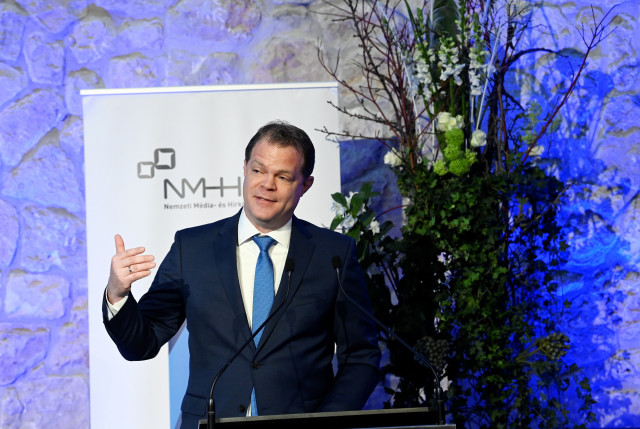
Saját maga felé húzott a Médiahatóság keze, amikor arról döntött, ki jelentheti a jogsértő tartalmakat az online platformoknak

